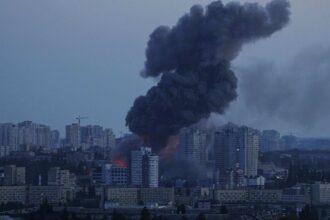The humanitarian crisis in Gaza deepened this week as Israeli officials announced significant cuts to aid deliveries entering the besieged enclave, citing Hamas’s rejection of the latest ceasefire proposal as justification for the reduction. This development marks a concerning escalation in the region’s ongoing humanitarian emergency, where millions already face acute food insecurity.
“The decision to limit humanitarian aid is directly linked to Hamas’s continued intransigence,” stated Israeli Defense Minister Yoav Gallant during a press briefing on Monday. “When they refuse reasonable terms for peace and the return of hostages, there are consequences.”
According to United Nations monitoring data, aid truck entries have decreased by approximately 35% since last week’s announcement, with food supplies being particularly affected. The World Food Programme has characterized the situation as “catastrophic,” estimating that over 87% of Gaza’s 2.3 million residents now face severe food shortages.
The timing of this aid reduction coincides with stalled ceasefire negotiations in Qatar, where international mediators including the United States, Egypt, and Qatar have been working to broker a deal between Israel and Hamas. Sources close to the talks indicate that disagreements over the sequence of hostage releases and Israeli troop withdrawals remain significant sticking points.
Hamas officials have condemned Israel’s aid restrictions as “collective punishment” and a form of negotiation leverage. “Using starvation as a weapon of war violates international humanitarian law,” Hamas spokesperson Bassem Naim told reporters in Doha. These claims have been echoed by several international aid organizations operating in the region.
The humanitarian implications extend beyond food security. Medical facilities report critical shortages of essential supplies, while water and sanitation systems operate at minimal capacity. Dr. Sarah Khalil from Médecins Sans Frontières described the situation as “untenable” during our interview at their field hospital in southern Gaza.
“We’re seeing preventable deaths daily due to the lack of basic medical supplies. Children are particularly vulnerable to the combined effects of malnutrition and poor sanitation,” Dr. Khalil explained.
The United States, a key ally of Israel, has expressed concern about the aid reductions. Secretary of State Antony Blinken emphasized that “humanitarian assistance should not be conditioned on progress in hostage negotiations,” during a press conference in Washington. However, critics argue that these statements have not been backed by meaningful pressure to reverse the policy.
For families of the estimated 132 hostages still held in Gaza, the situation represents another painful development in their ongoing ordeal. The Hostage Families Forum issued a statement expressing frustration with both sides: “Our loved ones are caught in a political standoff while their conditions deteriorate daily.”
The economic impact on Gaza has been equally devastating. According to economic analysts, the territory’s already fragile economy has essentially collapsed, with unemployment exceeding 80% and critical infrastructure severely damaged or destroyed.
Former Canadian diplomat Robert McKinnon, who specialized in Middle East affairs, told CO24 that the situation represents a dangerous escalation. “Using humanitarian aid as a bargaining chip risks further radicalization and instability. History shows that when basic needs go unmet, extremism flourishes.”
International law experts point out that the Fourth Geneva Convention explicitly prohibits collective punishment and requires occupying powers to ensure adequate humanitarian provisions for civilian populations. The International Criminal Court is currently examining potential violations related to the conflict.
As diplomatic efforts continue in Cairo and Doha, the immediate prospects for Gaza’s civilians remain bleak. Relief workers report that even if aid restrictions were lifted immediately, it would take months to address the accumulated shortages and health crises that have developed.
The question now facing the international community is stark: How can effective pressure be applied to both parties to prioritize humanitarian concerns over political and military objectives, and what will be the long-term consequences if the current trajectory continues?







